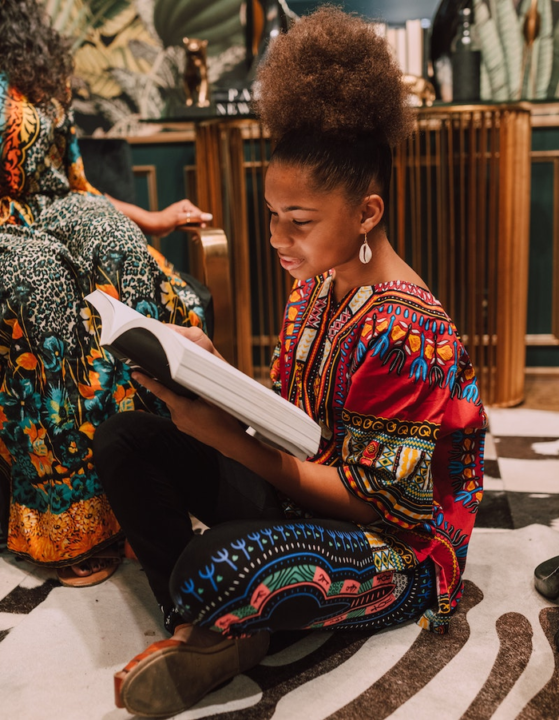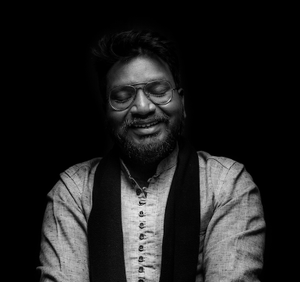Photo by Ian Kiragu on Unsplash
In a constantly evolving world, with new technologies, ideologies, and trends emerging daily, it’s easy to overlook the importance of the past. However, in many African cultures, there is a profound understanding that the past holds invaluable lessons for the present and future. One such concept is Sankofa, a word from the Akan people of Ghana, which translates to “go back and get it” or “learn from the past.” This concept emphasizes the importance of drawing wisdom and knowledge from one’s history to navigate today’s and tomorrow’s challenges. We will explore the cultural and philosophical significance of Sankofa, its relevance in today’s world, and how we can embrace it in our lives.
Sankofa is an Akan word from Ghana that means “go back and fetch it.” It symbolizes a bird with its head turned backward, carrying an egg in its mouth. The symbol represents looking back at our past to learn from it and move forward.

The Sankofa symbol. Source: Wikimedia Commons
The Sankofa concept is deeply rooted in African philosophy and culture. It emphasizes remembering our ancestors’ struggles and triumphs and using that knowledge to build a better future. Sankofa reminds us that our history is a part of who we are and that we cannot move forward without acknowledging and understanding it.
Significance of Sankofa
Sankofa is a powerful concept that can be applied to many aspects of our lives. It can help us to:
- Learn from our mistakes. By looking back at our past, we can identify the things that have gone wrong and learn from them so that we don’t make the same mistakes in the future.
- Embrace our heritage. Sankofa reminds us that we are connected to our ancestors and have a vibrant history. We can develop a stronger sense of identity and pride by learning about our heritage.
- Build a better future. By using the knowledge and wisdom of our ancestors, we can create a more just and equitable society for all.
Sankofa in the African Diaspora
The African diaspora, resulting from the transatlantic slave trade and other historical migrations, has spread the concept of Sankofa to various parts of the world. In the Americas and the Caribbean, where African descendants have created vibrant and resilient cultures, Sankofa plays a significant role.
- African American Culture: In African American communities, the idea of Sankofa is embedded in various cultural expressions, including music, dance, and art. The blues, jazz, and hip-hop genres often incorporate ancestry, struggle, and resilience themes, inviting listeners to reflect on their history and heritage.
- Caribbean Culture: The Caribbean, with its diverse blend of African, indigenous, and European influences, has embraced Sankofa through traditions like storytelling, oral histories, and carnival celebrations. These practices honor the past and provide a sense of continuity and identity.

Photo by RDNE Stock project
Embracing Sankofa in the Modern World
In a rapidly changing world marked by globalization, technology, and cultural shifts, the concept of Sankofa offers valuable lessons for individuals and societies.
- Preservation of Cultural Heritage: Sankofa reminds us of preserving our cultural heritage. In an era of rapid change, it’s crucial to maintain connections to our roots, traditions, and languages. This preservation fosters a sense of identity and provides a foundation for future growth.
- Learning from History’s Mistakes: Returning to the past allows us to learn from our mistakes and avoid repeating them. The study of history, particularly the injustices and inequalities of the past, can inform our efforts to create a more just and equitable society today.
- Cultural Exchange and Understanding: Sankofa encourages dialogue and exchange between different cultures. Exploring our shared histories and learning from one another can foster greater understanding and empathy, promoting peace and cooperation.
Sankofa in Practice
To truly embrace Sankofa in our lives, we can adopt practical strategies and attitudes:
- Seek Wisdom from Elders: Elders often possess knowledge and life experiences. Taking the time to listen to their stories and insights can be a valuable source of wisdom.
- Study History: Delve into the history of your culture, community, or family. Understanding your roots can provide a sense of identity and purpose.
- Document and Share Stories: Encourage the recording and sharing of oral histories and family stories. These narratives contain valuable lessons and can strengthen familial and communal bonds.
- Reflect and Learn: Take time to reflect on your own experiences and past events. Consider how they have shaped you and what lessons you can draw from them.

Photo by Ransford Quaye on Unsplash
The Relevance of Sankofa Today
Sankofa is not just a concept for the past but a guiding principle for the present and future. In a world facing complex challenges, from environmental crises to social inequalities, Sankofa reminds us of the importance of drawing on the wisdom of our ancestors to navigate these issues. It encourages us to ask questions like:
- How can we address current social injustices by learning from past movements for change?
- What traditional practices and knowledge can inform sustainable and harmonious relationships with the environment?
- How can we bridge divides and promote peace by understanding the historical roots of conflicts?
Sankofa is a timeless concept that transcends borders, cultures, and generations. It invites us to reflect on the past with reverence, humility, and a thirst for wisdom. In doing so, we can better understand our present, shape our future, and forge connections with others who share our commitment to learning from history.
As individuals, communities, and societies, we can embrace Sankofa as a guiding principle for personal growth, cultural preservation, and positive social change. By recognizing the value of our collective heritage and the lessons contained, we can aspire to create a more enlightened and harmonious world that honors the wisdom of the past as we stride confidently into the future.

Anand Subramanian is a freelance photographer and content writer based out of Tamil Nadu, India. Having a background in Engineering always made him curious about life on the other side of the spectrum. He leapt forward towards the Photography life and never looked back. Specializing in Documentary and Portrait photography gave him an up-close and personal view into the complexities of human beings and those experiences helped him branch out from visual to words. Today he is mentoring passionate photographers and writing about the different dimensions of the art world.





